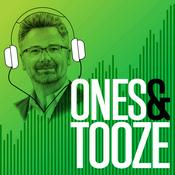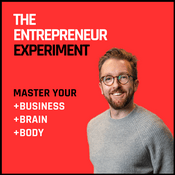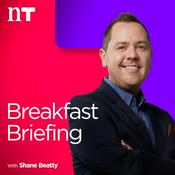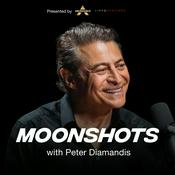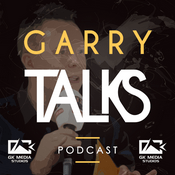61 episodes
Investing in the Future of Longevity (Sergey Jakimov, Managing Partner, LongeVC)
13/8/2025 | 51 mins.Sergey Jakimov is the Managing Partner and co-founder of LongeVC, one of Europe's most active longevity-focused venture capital firms, currently raising its second fund targeting $250 million.
In this episode, Chris and Sergey explore the investment landscape shaping longevity biotechnology today. They discuss LongeVC's pragmatic approach to longevity investing—focusing on disease-modifying therapies rather than targeting aging itself—and why this strategy has been successful across their portfolio. Sergey shares insights from major successes including Rubedo's partnership with Beiersdorf and Turn Bio's deal with HanAll, explaining what these deals signal about pharma's evolving interest in longevity approaches. The conversation covers critical topics for researchers and entrepreneurs: common pitfalls in academic spin-offs, the importance of clear regulatory pathways, and how the upcoming patent cliff is creating new opportunities for early-stage biotechs in the longevity space.
Listeners will gain valuable insights into what makes a longevity company investable, how to navigate the transition from academic research to commercial venture, and why solving age-related diseases one by one may ultimately lead to a holistic understanding of aging itself.
The Finer Details:
Sergey's journey from aspiring neurosurgeon to deep tech entrepreneur to longevity investor
LongeVC's pragmatic philosophy: targeting specific diseases rather than aging as a whole
The convergence of biotech, regenerative medicine, and AI in the longevity space
Key criteria for early-stage investment: disease indication, balanced teams, clean IP transfer
Why "five scientists in a room" and "great mouse data" don't make an investable company
The importance of platforms having their own pipelines, not just service models
How LongeVC's scientific advisory board (including Alex Zhavoronkov, Vadim Gladyshev, Thomas Rando) evaluates investments
Success stories: Rubedo's senolytic partnership and Turn Bio's epigenetic reprogramming deal
The changing dynamics between pharma and biotech driven by patent cliffs and urgency to find the "next GLP-1"
Regulatory strategies: focusing on specific endpoints rather than aging broadly
Making longevity medicine accessible through disease-focused approaches and data-driven validation
Personal motivation: Sergey's experience as a rare disease patient and the urgency of advancing treatments
Quotes:
"Longevity as an industry is by far the industry with the biggest added value out there, because that is the issue that we all share. Without solving these things, none of the other stuff really matters—not FinTech, not blockchain, not sustainability."
"Five scientists in a room generally don't make a company. Prolonging rodent lives does not make a company either."
"The ultimate longevity drug version 1.0 would be a therapeutic which has an original disease indication, which also has somehow cracked the mechanism of action that would be translatable across several age-related disease domains."
"It is extremely arrogant for the space to say that we're not interested in age-related diseases, like we're not interested in curing the diseases. That's traditional biotech. We're not that. We are the longevity space."
"Pharma is still thinking in terms of assets rather than processes. It is almost impossible to sell a process to them... What pharma still wants is the result of that capacity actually coming to life."
"At the point when something has happened to you and a rare disease has happened to you... you're only equipped with that standard of treatment that is currently available and that has made it to the clinic."
"I think the presence of the FDA as this kind of gatekeeper-type agency saying, 'No, you cannot go after aging in a...Molecules to medicine: The translational landscape of aging interventions (Panel discussion at BAAM 2025)
09/7/2025 | 47 mins.In this special episode, host Chris Patil (VP-Media, BioAge) moderates a live panel discussion at the 25th Bay Area Aging Meeting at UCSF, bringing together six leading voices across the aging research ecosystem to tackle one of the field's most critical challenges: how to move promising discoveries from the laboratory to therapies that can benefit patients.
The distinguished panel spans academia, industry, and scientific publishing, featuring Janine Sengstack (CEO, Junevity), Saul Villeda (Professor, UCSF), Jodi Nunnari (Director, Bay Area Institute of Science, Altos Labs), Sebastien Thuault (Chief Editor, Nature Aging), Anne Brunet (Professor, Stanford), and Nir Barzilai (Professor, Albert Einstein College of Medicine). Together, they explore the most promising research directions for clinical impact, the revolutionary tools enabling modern aging research, and the structural challenges that must be overcome to bring longevity therapies to market.
Listeners will gain insights into the emerging science of cellular rejuvenation, the importance of systemic factors in aging, how to balance high-risk discovery with practical drug development, and the cultural shifts needed to better prepare the next generation of scientists for translational work. The panel also addresses the regulatory challenges of targeting aging itself as an indication and offers candid advice for young researchers navigating this rapidly evolving field.
The Finer Details:
Emerging research directions with the greatest clinical potential: cellular senescence, rejuvenation and repair, DNA methylation clocks, and understanding what makes aging biomarkers tick
The revolution in cellular and spatial resolution tools and how single-cell technologies are revealing cell-type-specific aging responses
Systemic factors and the remarkable plasticity remaining in aging organisms that can be unlocked through interventions
The critical importance of starting with human data and working backward to validate targets and approaches
Challenges unique to aging biotech: the need for aging-specific cellular assays, testing in older animal models, and genetic validation
Cultural and structural barriers between academia and industry, including the shift from mechanism-focused to mission-driven research
Balancing high-risk fundamental discovery with the practical needs of drug development and clinical translation
The regulatory landscape for aging interventions and potential pathways to FDA approval beyond traditional disease indications
Advice for young scientists: embracing rejection as part of the process, finding passion, working as teams, and considering diverse career paths in the growing longevity ecosystem
Quotes:
"Our goal as a company is to increase human health span, and the way I like to frame that more colloquially is we want to increase the number of happy, healthy years each person gets to spend on Earth." - Janine Sengstack
"There is an exquisite amount of plasticity left in an aging organism, both within the tissues, within the cells. There is plasticity that we can actually tap into." - Saul Villeda
"Burn bright, but don't burn out." - Jodi Nunnari
"The challenge that we run into is that there are so many combinations that very quickly it would become intractable to line up enough test tubes to test them all." - Sebastien Thuault, on the complexity of aging interventions
"We love our job. If not, we would not be doing it. I would do it again in a heartbeat... you get paid to play, to ask the questions that interest you, the approaches that interest you to play with who you want to—it is a fantastic job." - Saul Villeda
"Our life is a life of rejection...and still, we're having fun and making an advance. So don't give up." - Nir BarzilaiPartial epigenetic reprogramming: the "holy grail" for aging therapeutics (Michael Ringel, Life Biosciences)
04/6/2025 | 37 mins.Michael Ringel is the Chief Operating Officer of Life Biosciences, a biotechnology company pioneering cellular rejuvenation therapies to reverse and prevent multiple diseases of aging. Michael became COO of Life just a few months ago, but he's been advising the company since 2018. Prior to this year, he was managing director and senior partner at Boston Consulting Group (BCG), where over a 25-year career he focused on R&D and innovation initiatives across the private sector and government. He earned his PhD in biology at Imperial College London and a JD from Harvard Law, and has become an active and highly respected member of the global longevity biotech community.
In this episode, Chris and Michael explore Life Biosciences' groundbreaking approach to partial epigenetic reprogramming - the "holy grail" technology that could transform how we age at cellular, tissue, and organism levels. They discuss how this approach taps into the same biology that makes babies young, Life's lead therapeutic candidate ER-100 for eye diseases, and the "pipeline in a pill" concept at the core of the geroscience hypothesis: the idea that enable single interventions based on longevity science could treat multiple age-related diseases simultaneously.
The Finer Details:
The biology behind partial epigenetic reprogramming and how it differs from full reprogramming to pluripotency
Why Michael considers partial reprogramming the "holy grail" of longevity interventions
Life Biosciences' lead candidate ER-100 for glaucoma and NAION (non-arteritic anterior ischemic optic neuropathy)
The innovative inducible system that allows the therapy to be turned on and off with doxycycline
Why the eye represents an ideal starting point for reprogramming therapies
The "pipeline in a pill" concept and geroscience hypothesis - how single interventions could treat multiple age-related diseases
Parallels between the emerging longevity field and the massive GLP-1 drug market that many pharma companies missed
The role of philanthropic investment in advancing fundamental longevity research
Evolutionary theories of aging and why aging should be easily manipulable
Timeline expectations for moving from single disease treatments to whole-body rejuvenation
Links
Life Biosciences company website
Michael Ringel's ARDD talkCell Reset Therapeutics to Extend Healthspan and Lifespan (Janine Sengstack, Junevity)
02/4/2025 | 36 mins.Dr. Janine Sengstack is the Chief Scientific Officer and co-founder of Junevity, a company created in 2023 with the mission of extending health span and lifespan through what they term "Cell Reset therapeutics." The company recently secured $10 million in seed funding.
In this episode, Chris and Janine explore the innovative platform Janine developed during her PhD work in Hao Li's lab at UCSF, which now forms the foundation of Junevity's therapeutic approach. They discuss how the company uses computational and experimental methods to identify transcription factors that can "reset" cells from a diseased, aged state back to a healthy state while maintaining cell identity. Janine explains how Junevity is developing siRNA therapeutics targeting these transcription factors to treat age-related diseases, with a focus on metabolic conditions and other disorders that impact longevity.
The Finer Details:
The development of the Reset platform during Janine's PhD work and its evolution into Junevity's therapeutic approach
How transcription factors act as "managers" in cells, regulating many other genes
Using AI and machine learning to identify the right transcription factors to target based on disease and tissue-specific data
The validation process for siRNA therapeutic candidates in cell and animal models
Junevity's focus on diseases with large-scale transcriptional dysregulation, including type 2 diabetes, obesity, muscle wasting diseases, and osteoarthritis
The advantages of siRNA as a therapeutic modality for targeting traditionally "undruggable" transcription factors
Junevity's business strategy and timeline, with clinical trials potentially beginning in 2026
Quotes:
"We tackled this high risk, high reward PhD project: we were inspired by the Yamanaka factors to say, 'Okay, let's find brand new transcription factors that we can target to take cells from a diseased, old state and bring them back to a healthy state while keeping them the same cell type, never turning them into a stem cell.'"
"Transcription factors: I like to think of them as managers in the cell."
"We think the advent of modern AI and machine learning tools to better analyze what they regulate, plus siRNA as a really well-proven therapeutic modality, really unlocks the ability to target transcription factors and really make powerful therapeutics with them."
"We're thinking about using transcriptional regulation as a way to come up with novel therapeutics to treat diseases that have a big impact on people's health span and lifespan."
"We want to advance our programs towards development candidates, which basically means the drug entity, and move them forward towards clinical development as fast as possible."
"I would love if we had multiple siRNA drugs on the market, ideally, or in late stages of development for a wide range of longevity-related diseases... We think that there's really huge potential here for making a big impact on a lot of different really complicated diseases."
Links
https://www.junevity.comBuilding the Infrastructure for Longevity Medicine: ARPA-H's PROSPR Program (Dr. Andrew Brack, Program Manager)
09/1/2025 | 40 mins.Dr. Andrew Brack, Program Manager at the Advanced Research Projects Agency for Health (ARPA-H), discusses PROSPR (Proactive Solutions for Prolonging Resilience), an ambitious new program aimed at extending human healthspan. In this wide-ranging conversation, Chris and Andrew explore how PROSPR plans to accelerate the development of therapies that target aging itself by building the regulatory and scientific infrastructure needed to measure and improve health during aging. They discuss PROSPR's innovative approaches to in-home data collection, biomarker development, and clinical trial design that could compress decades-long studies into just three years.
The Finer Details:
The mission and structure of ARPA-H as a catalyst for healthcare innovation
How PROSPR aims to build "train tracks" for the longevity therapeutics industry
The program's novel approach to measuring health through intrinsic capacity
Strategies for compressing clinical trials from decades to years
The economic impact of extending healthspan by just one year
Plans for first- and second-generation therapeutics targeting aging
The role of in-home health monitoring in future clinical trials
Quote:
"We have this moral imperative to close the gap between the length that we are living and the number of years that we're living in good health."
Links:
PROSPR website
Proposers' Day registration
More Business podcasts
Trending Business podcasts
About Translating Aging
On Translating Aging, we talk with the worldwide community of researchers, entrepreneurs, and investors who are moving longevity science from the lab to the clinic. We bring you a commanding view of the entire field, in the words of the people and companies who are moving it forward today. The podcast is sponsored by BioAge labs, a clinical-stage biotechnology company developing therapies to extend human healthspan by targeting the molecular causes of aging.
Podcast websiteListen to Translating Aging, The Open Book Podcast and many other podcasts from around the world with the radio.net app

Get the free radio.net app
- Stations and podcasts to bookmark
- Stream via Wi-Fi or Bluetooth
- Supports Carplay & Android Auto
- Many other app features
Get the free radio.net app
- Stations and podcasts to bookmark
- Stream via Wi-Fi or Bluetooth
- Supports Carplay & Android Auto
- Many other app features


Translating Aging
Scan code,
download the app,
start listening.
download the app,
start listening.


